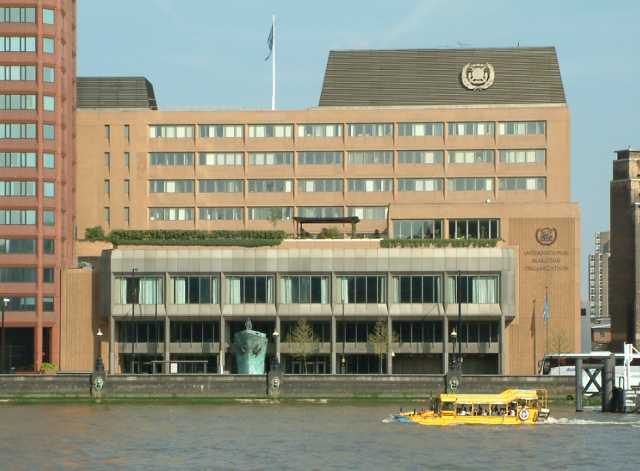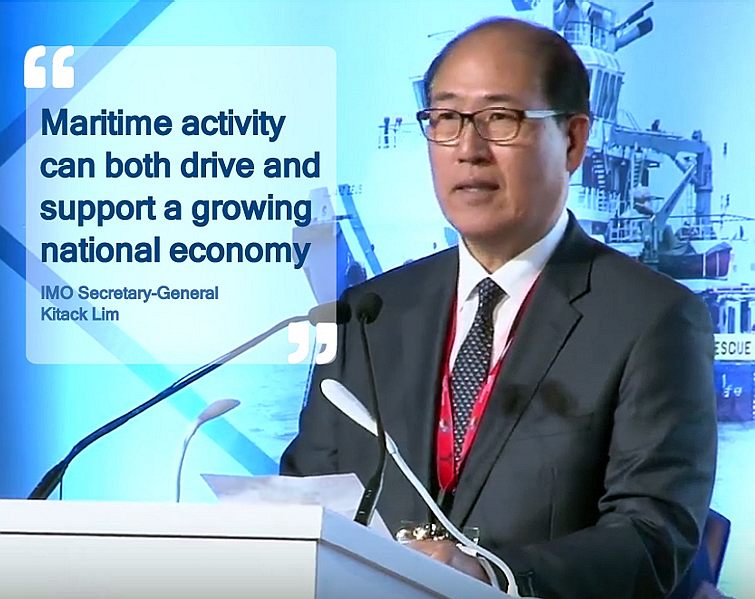|

FRANCE 24 FEBRUARY 4 2023 - BRAZIL SINKS WARSHIP IN ATLANTIC DESPITE MARITIME POLLUTION CONCERNS
Brazil on Friday (3rd) sank a decommissioned aircraft
carrier, the Navy announced, despite environmental groups claiming the formerly French ship was packed with toxic materials.
The "planned and controlled sinking occurred late in the afternoon" on Friday, some 350 kilometers (220 miles) off the Brazilian coast in the
Atlantic
Ocean, in an area with an "approximate depth of 5,000 meters (16,000 feet)," the Navy said in a statement.
[The
depth will make it difficult for investigators to establish how much
asbestos in onboard, to be able to calculate a scale of fine, for the
intentional pollution of the ocean. This was obviously part of the plan,
with malice aforethought.]
The decision to scuttle the six-decade-old Sao Paulo, announced Thursday, came after Brazilian authorities had tried in vain to find a port willing to welcome it.
Though defense officials said they would sink the vessel in the "safest area," environmentalists criticized the decision, saying the aircraft carrier contains tons of asbestos, heavy metals and other toxic materials that could leach into the
water and pollute the marine
food chain.
The Basel Action Network had called on Brazilian President Luiz Inacio Lula da Silva -- who took office last month vowing to reverse surging environmental destruction under far-right ex-president Jair Bolsonaro -- to immediately halt the "dangerous" plan.
The group issued a joint statement with Greenpeace and Sea Shepherd on Friday, accusing Brazil of having violated "three international treaties" on the environment by sinking the ship, which the NGOs said could cause "incalculable" damage to marine life and coastal communities.
Other "environmentally responsible measures could have been adopted, but once again, the importance of protecting the oceans, which are vital for the life of the
planet, was treated with negligence," said Leandro Ramos, director of programs for Greenpeace Brazil.
[It
is not just negligence, it is a cold hard, calculated criminal act. Once
they realised no other country could trust them as to asbestos. Brazil
could, and should have arranged for a special location in their own
country, to dismantle their outdated warship. Taking all precautions to
protect recyclers against asbestos. They did not do so, presumably,
because they knew it would be a costly exercise. Where the cheaper
option was to ignore the natural law of the sea, and just dump their
problem on everyone else - in the long term.]

'TRAGIC AND REGRETTABLE'
Brazilian authorities said it was better to sink the ship on purpose rather than allow it to sink spontaneously on its own.
The Navy insisted it had chosen a spot for sinking that considered "the security of navigation and the environment" and "the mitigation of the impacts on public health,
fishing activities and ecosystems."
A judge overruled a last-minute legal bid to stop the operation, saying in his decision that an unplanned sinking could be even worse for the environment or pose a danger to crews, the G1 news outlet reported.
He called the situation "tragic and regrettable," according to G1.
Built in the late 1950s in France, whose navy sailed it for 37 years as the Foch, the aircraft carrier earned a place in 20th-century naval history.
It took part in France's first nuclear tests in the Pacific in the 1960s, and deployments in Africa, the Middle East and the former Yugoslavia from the 1970s to 1990s.
Brazil bought the 266-meter (873-foot) aircraft carrier for $12 million in 2000.
[A bargain, except for the disposal costs. Perhaps
there should be a legal requirement for navies to have a recycling plan
and deposit scheme for such recycling, before they commission new
warships, extending to the purchase of second user warships]
A fire broke out on board in 2005, accelerating the aging ship's decline.
Last year, Brazil authorized Turkish firm Sok Denizcilik to dismantle the Sao Paulo for scrap metal.
But in August, just as a tugboat was about to tow it into the Mediterranean
Sea, Turkish environmental authorities blocked the plan.
Brazil then brought the aircraft carrier back but did not allow it into port, citing the "high risk" to the environment.
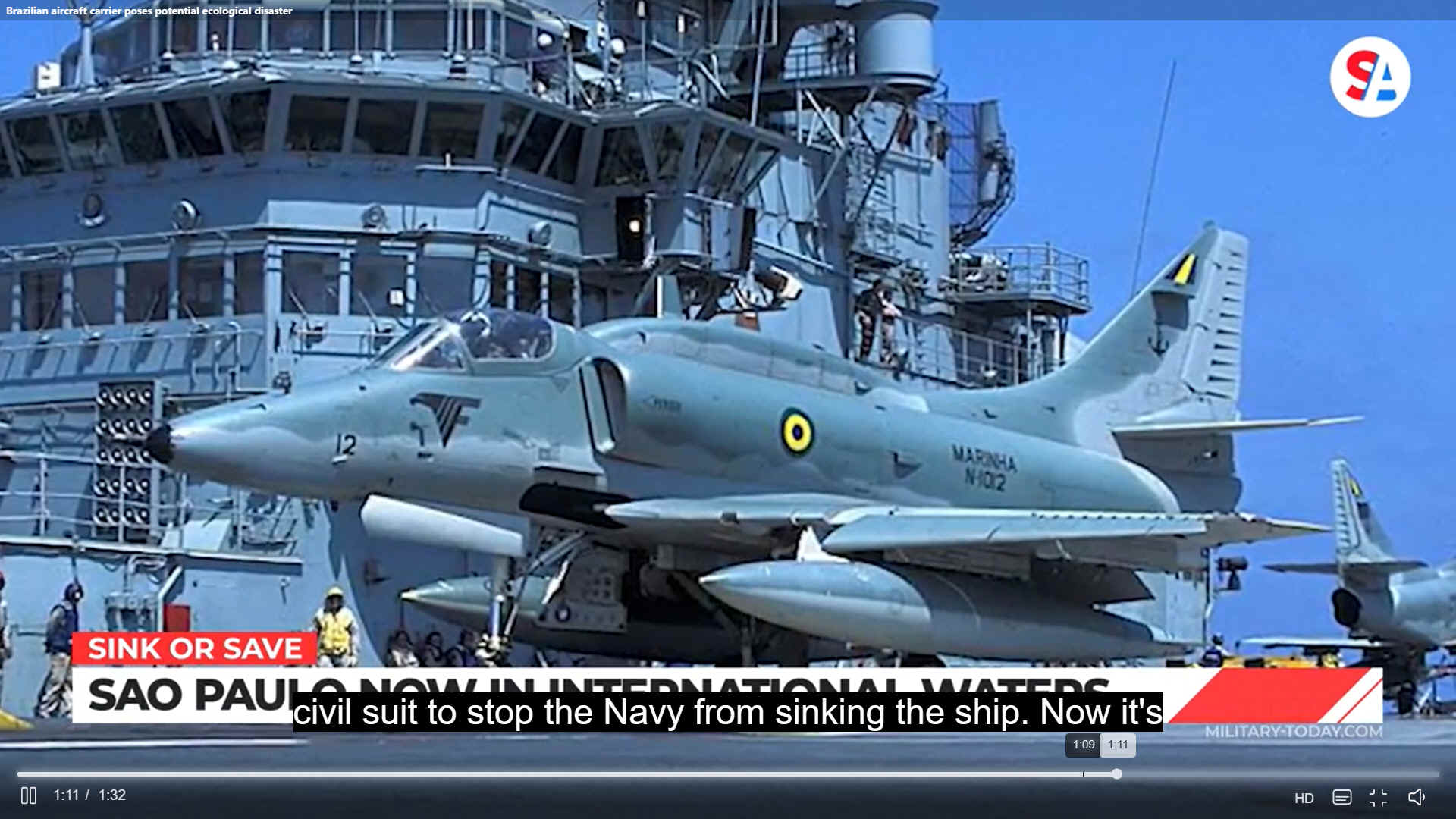
THE HONG KONG CONVENTION - RECYCLING OF SHIPS -
INCLUDING WARSHIPS
When a ship itself reaches its end of life, almost every part of a ship can be recycled -
steel, machinery, equipment, fittings and furniture. Virtually nothing goes to waste and the materials and equipment are almost entirely reused and recycled. Moreover, ship recycling provides direct and secondary employment for thousands of workers, both in the industry itself and in the ancillary markets for materials and components, particularly in the five countries where most of the world’s ship recycling is carried out today – Bangladesh, China, India, Pakistan and Turkey.
IMO has embraced the regulation of ship recycling - not only for ships, but also for land-based recycling facilities - into a single, comprehensive instrument. The International Convention on the Safe and Environmentally Sound Recycling of Ships, the so-called Hong Kong Convention, was adopted in 2009.
The Convention embraces the “cradle to grave” concept for the purpose of addressing all environmental and safety aspects relating to ship recycling, taking them into account from the ship design stage onwards and right through to the end of the ship’s life, and including also the responsible management and disposal of associated waste streams in a safe and environmentally sound manner.
When the Hong Kong Convention enters into force, it will provide inclusive and effective standards that can be applied universally. It places responsibilities and obligations on all parties concerned -
ship owners, ship building yards, ship recycling facilities, flag States, port States, recycling States, etc. The Convention, the first ever to address ship recycling issues, is aimed at ensuring that ships, when being recycled after reaching the end of their operational lives, do not pose any unnecessary risk to human health and safety or to the environment.
IMO is currently raising awareness of the Convention internationally and in particular is working with recycling countries, to help build the capacity and establish the conditions that will enable them to ratify/accede to the Hong Kong Convention.
Clearly
though, the IMO has been ineffectual in this case. Navies all over the
world will use the sinking of the Sao Paulo as an excuse to dump more
toxic waste, in disposable fashion.
https://www.msn.com/en-gb/news/world/brazil-sinks-warship-in-atlantic-despite-maritime-pollution-concerns/ar-AA176904
|
|
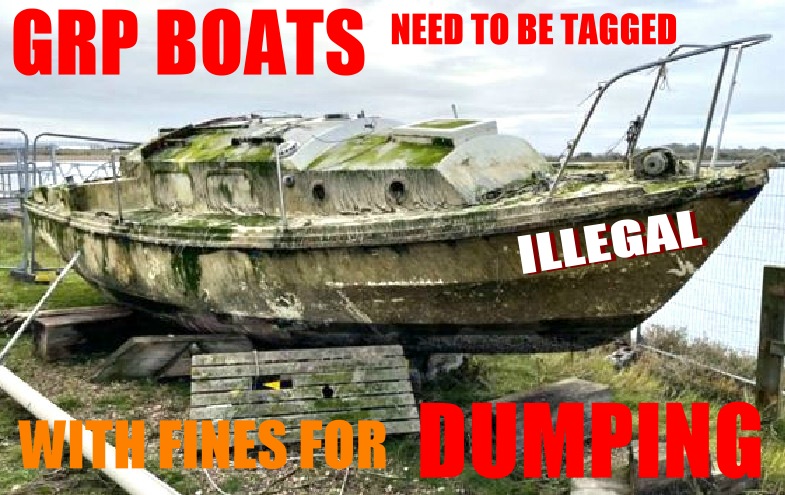
DISPOSABLE
- If they have the money to buy a boat or yacht, they have the throwaway
cash to responsibly recycle or dispose of the toxic waste
that glassfibre boats represent. Boats that are dumped illegally break
up into microscopic glass strands and plastics, that shellfish and other
seafood ingest, working its way up the food chain to humans. So, look at
the yachting and boating fraternity with new eyes. Are they registered
with a recognised "end-of-life" scrappage scheme. Does your
Government give two figs? If not, elect someone who actually gives a
damn. Marinas loaded with gleaming GRP boats, represents death to the
ocean, unless properly regulated. Though, boating is a healthy pastime
that should be encouraged, and most pleasure craft owners, would want to
do the right thing, once, the dangers of fibreglass is explained. The
marine leisure market is good for the economy. Whereas, commercial
fishing craft and fishermen, need to know all about GRP when deciding on
their next boat. Will it be plastic
free?
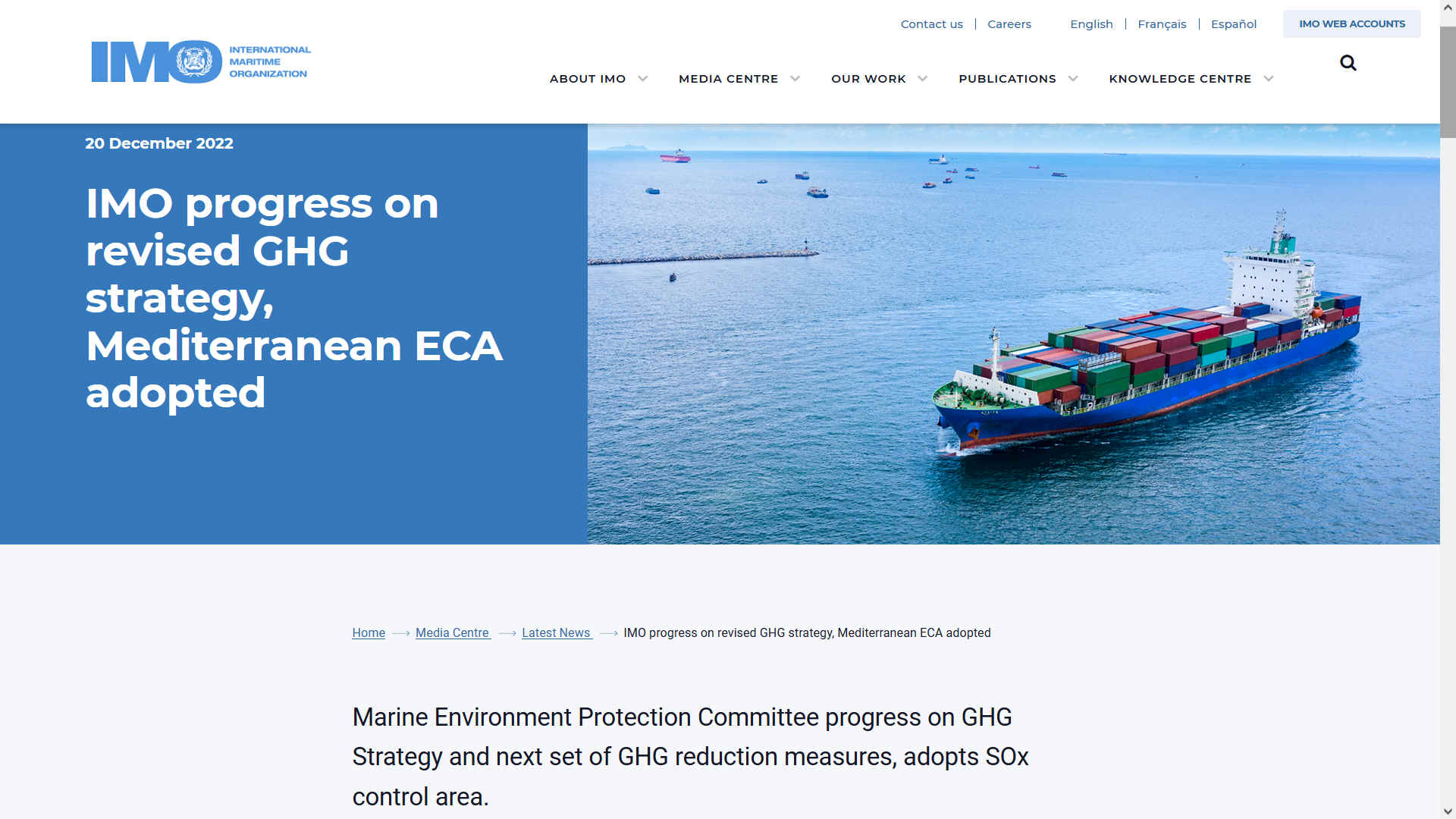
|



